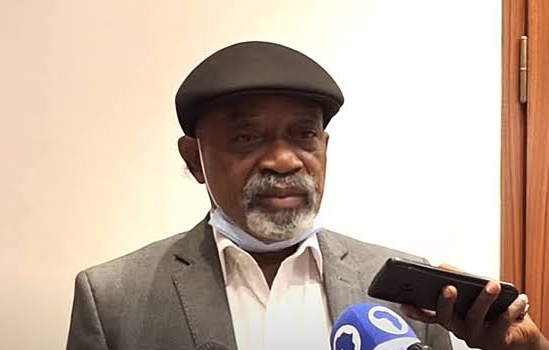
The Federal Government has said that it is not opposed to renegotiations of the conditions of service of all workers in the public universities across the country.
The Minister of Labour and Employment, Chris Ngige stated this on Monday while receiving members of the government side of the 2009 Federal Government/University-based unions agreement re-negotiation committee led by the Chairman, Prof. Nimi Briggs.
Speaking against the backdrop of the ongoing strike by the Academic Staff Union of Universities(ASUU), Ngige said as the conciliator, he has been pushing to see that everything contained in the 2020 Memorandum of Understanding (MOU) signed by the government and the union was done, including the implementation of the renegotiated positions.
The minister recalled that the renegotiation commenced in 2017 when the Federal Government was inaugurated. a committee headed by Wale Babalakin SAN who was later replaced by Professor Manzali, but COVID-19 struck in 2020.
He explained that in the December 2020 agreement, he gave the government side a timeline to return to the university unions who are their employees to sort everything out.
“I started pushing to see that things were done. What the Manzali committee came up with is a proposal. Both Manzali and ASUU did not sign. At our last meeting in February before ASUU proceeded on strike, we said everyone should go back to his principal,” Ngige stated during the meeting.
“I asked the Education ministry several times what they had done with the document. We later got information on areas of disagreement. There is nothing wrong with that. It is bound to happen. I told ASUU to put up a committee, they said Manzali committee had expired.”
“So, I am a parent. I feel it. I didn’t send my children to Igbinedion or Afe Babalola or Cambridge.”
Ngige said his daughter has American citizenship and could have accessed American education but he refused.
According to him, the Nigerian university system produced him and he remains proud of it.
“When we went to universities here, I knew the course content and as a medical doctor, the doctors we trained here are better than the ones trained abroad. That is one of the counsels I gave to my children. You can do your first degree. One got admission in Ghana, I said no. Others got in Canada and UK, but I refused. If anybody will be interested in the welfare of workers in Nigerian universities, I am number one. I told my colleagues that what university professors showed us here as their salaries is unacceptable.”
The minister said he had commissioned studies on productivity with regards to emoluments and based on the results he got, it was clear that payments done ten years ago when the exchange rate was better, amounted to nothing now with 100 percent depreciation of Naira compared to the Dollar.
“Why won’t I support if ASUU and their unions now want a renegotiation of their conditions of service, which is the main thing in the proposal by previous Manzali?”
Meanwhile, Prof. Briggs who is also the Pro-Chancellor of the Alex Ekwueme Federal University, Ndifu Alike, Ebonyi State, said the renegotiation committee was consulting all stakeholders with a view to finding a lasting solution to issues in dispute.
The academics are seeking improved welfare, revitalisation of public universities and academic autonomy among other demands.
One bone of contention for the academics is the non-payment of university revitalisation funds, which amounts to about N1.1 trillion.
But the Federal Government has said it doesn’t have the money to pay such an amount, citing low oil prices during the Muhammadu Buhari administration.
The agreement was reportedly struck in 2009.
Another is the issue of the Integrated Payroll and Personnel Information System (IPPIS).
The academics have proposed an alternative payroll system, the University Transparency and Accountability Solution (UTAS).
Comments